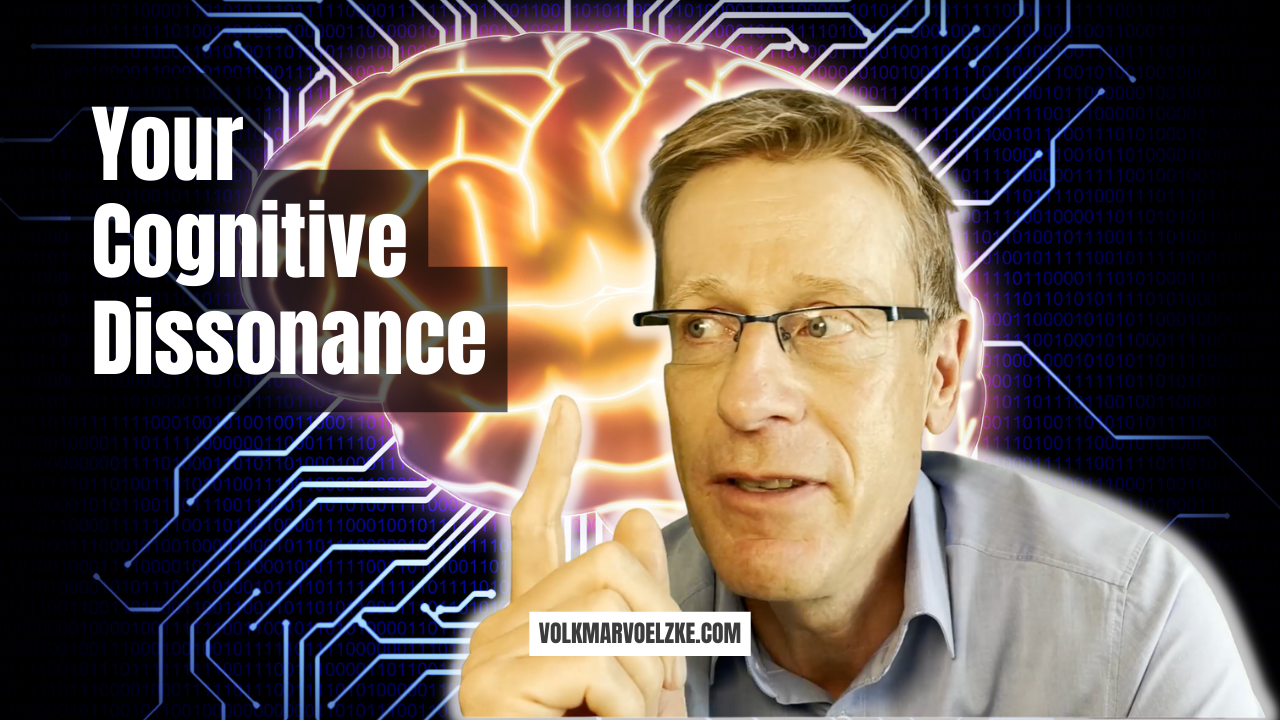🌩 Your Cognitive Dissonance

Today we're talking about a common phenomenon that gets in the way of our influence and success more often than we'd like to admit: cognitive dissonance.
This is a term from psychology that describes how, in many cases, when reality does not match our expectations, we prefer to reinterpret reality rather than adjust our expectations.
This can sometimes be useful in the sense that we try everything to change reality according to our goals. But it can also often lead us to disconnect more and more from reality and our environment.
This phenomenon can creep in anywhere and often occurs - but not only - in the executive suites of larger companies.
Why there in particular? Because more personal ego is involved: the more I manifest my expectations and couple them to my personality, the more difficult it is to adjust these expectations. The way out: I choose to interpret reality differently.
Now, as a leader, how can you escape this trap? I recommend three steps:
-
Listening well to others.
Far too rarely do we listen to others in order to understand their point of view. Instead, we prefer to think about how we can convince the other person of our point of view.
By listening well - and asking the appropriate open-ended questions - we can often expose our own cognitive dissonance and see other realities.
The more we think we know how something "should" be, for example, the harder it is for us to do this listening. The good news: this openness can be trained.
-
Put ego on the back burner.
The problem starts when we equate goal achievement with our identity. Then I just can't go back when reality shows a different picture.
Therefore, it is better not to link identity to specific goals, but to make principles and aspirations the basis of one' s self-image. This kind of identity will then survive any setbacks.
Another way to put one's ego on the back burner is to openly admit mistakes at any time. If I can say I was wrong, the danger of cognitive dissonance is immediately much lower.
-
Learning from experience.
If we evaluate every personal setback as a learning experience, the danger of cognitive dissonance is also significantly reduced.
Because in that case I can always say, "Great that we were wrong, because that's the only way we could learn a great deal!"
Of course, this does not mean that you should deliberately cause setbacks and become indifferent. On the contrary: Give it your all and see defeats as a gain in experience.
So here you have three points on how to become a better leader. Of course, it is always worthwhile to discuss this in more detail in a personal conversation. In that case ➔ just get in touch.
➡️ Next steps:
Whenever you're ready, check out my ➔ coaching programs and set up ➔ a 15min appointment here to get to know each other.
